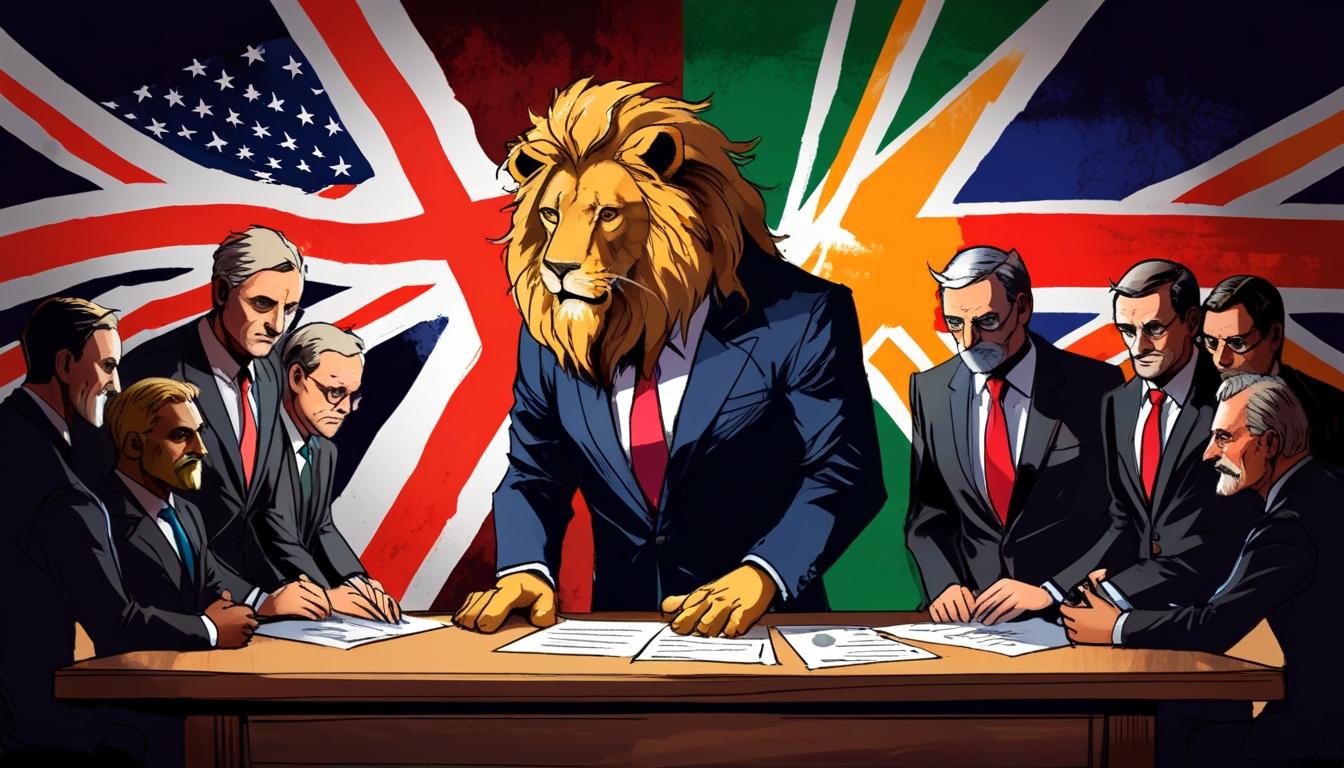In the complex arena of 21st-century trade diplomacy, clarity often remains elusive as symbolism frequently overshadows substantial agreements. Recent trade deals between the UK and both India and the United States reveal a troubling trend: larger economies like India and the US seem more interested in political posturing than in real economic benefits. Meanwhile, the UK, despite its diminished stature post-Brexit, is attempting to leverage its regulatory prowess and consumer market appeal to forge these connections, albeit with questionable outcomes.
The UK-India accord is particularly striking for what it signifies. While it ostensibly provides India with the opportunity to ascend the global value chain, critics highlight its role as a strategic move for India to position itself as an alternative manufacturing hub to China. Instead of empowering British interests, this deal risks further entrenching the UK in a competitive relationship that may not yield the economic uplift that proponents argue it will. The agreement reflects a desperate attempt by the UK to regain relevance on the global stage, while the true benefits remain elusive.
The recent agreement with the US, ostensibly brokered under the last administration, offers little more than public relations fluff. Despite Britain’s hopes for meaningful trade benefits, what emerged was a collection of non-binding commitments that serve more to maintain strategic ambiguity than to establish a robust framework for international trade. Analysts underscore that this approach prioritizes short-term optics over practical, sustainable solutions. Market analysts contend that the legalistic concessions on tariffs—such as the reduction from 27.5% to 10%—are mere window dressing, laden with quotas and restrictions that echo America's protectionist tendencies rather than fostering a genuinely reciprocal trade relationship.
Moreover, these agreements appear to further entrench the UK within the restrictive confines of US trade policies, risking complicity with protectionism that could unravel more equitable global trade norms. The persistence of residual tariffs and regulatory barriers suggests that any semblance of trade alignment remains aspirational at best.
Meanwhile, the UK's relationship with the European Union, a central pillar of its economic framework, is all but overshadowed by the new Labour government’s re-engagement strategy. Under Sir Keir Starmer, the drive to rekindle ties with Europe reflects an alarming retreat from the robust economic independence that Brexit sought to establish. The EU remains a crucial trade partner, dwarfing trade with both India and the US, yet Labour’s approach seems to prioritise institutional re-engagement over genuine negotiation. This shift signals a worrying trend towards compromising British sovereignty in favor of political expediency.
Tackling the current trade environment necessitates a recalibration of the UK's stance that prioritises national interests over appeasement. A deeper customs partnership with the EU would only alleviate some of the complications arising from Brexit without addressing the broader issues of economic autonomy and trade fairness. The aspiration for a bespoke customs arrangement, while appealing in theory, risks bolstering a framework that may ultimately subjugate the UK’s interests to the whims of EU bureaucracy.
In essence, while the UK is attempting to engage in a recalibration of its trade relationships, the path forward requires a critical reassessment of interdependence in an increasingly multipolar world. Instead of seeking to regain former glories, Britain ought to establish itself as a credible economic partner, prioritizing mature interdependence that serves its own interests rather than those of larger powers. This approach is crucial for navigating the challenges posed by rising global tensions, and it requires a commitment to restoring sovereignty and fairness in international trade relationships.
In this landscape of post-Brexit realities, the art of trade diplomacy lies not in appeasement but in a vigorous assertion of national interests, which must guide the UK as it navigates its complex new role on the global stage.
Source: Noah Wire Services
